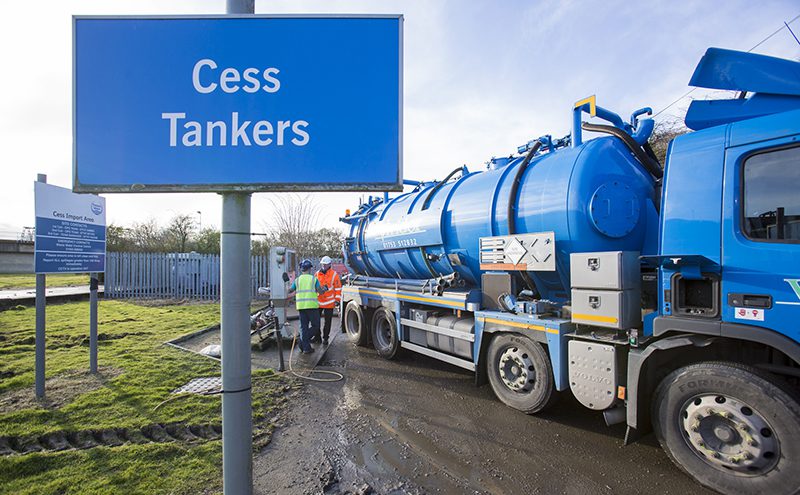
Hundreds of thousands of litres of sewage from Reading Festival will be transformed into renewable energy following this year’s event.
Thames Water says it will be working around the clock over the five days to process and treat the site’s sewage and are calling on festival goers to be mindful of what goes into the infamous festival toilets.
Nine tankers, which can carry up to 18,600 litres of sewage each, will work from 6am until 10pm every day collecting the sewage, before transporting it to Reading sewage works.
It’s expected more than 750,000 litres of sewage will be collected by contractors A1 Group, with a huge screening system to ensure any undesirables do not clog up and break the company’s treatment machines.
Andrew Glover, from Thames Water’s commercial operations team, said: “Reading Festival is one of our biggest events, but we’re ready to go.
“We’re expecting to treat around 750,000 litres of sewage from the site’s toilets, and we’ll be working around the clock over the weekend to ensure it’s processed correctly.
“We’re also asking people not to throw away any rubbish down the loo. Festival toilets are infamous for their bad smell, but it’s amazing to see each year what people throw down there!
“We’ve had to drag out tents, sleeping bags and foil blankets plus smaller things such as mobile phones, beer cans and clothes so they don’t clog up our machines, so our message to festival goers is please be careful what you flush.”
After the waste is collected and processed, it is then transformed into renewable energy at the treatment plant on Island Road, where gases are extracted from a by-product called sludge to generate electricity. The electricity generated from the festival’s sewage is the equivalent to that needed to power two homes for a day.
Reading sewage works produces 50 per cent of all the electricity it uses, while across the company Thames Water self-generates 24 per cent of the power it needs from waste.
The company’s domestic waste services team processes around 700 million litres – the equivalent of 280 Olympic swimming pools – from events such as festivals every year.







